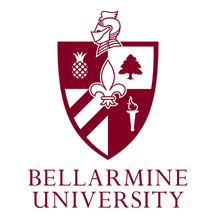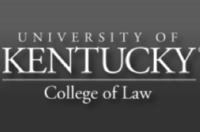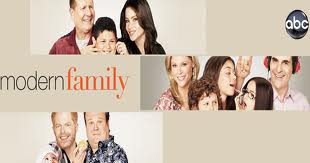In 1984, Vic Hellard, longtime director of the Legislative Research Commission and Kentucky historian, conducted a much anticipated oral history with the “Sage of Kentucky Politics,” Edward F Pritchard. Pritchard, came onto the Kentucky political scene like a meteorite—a wunderkind from Paris, Kentucky who went to Princeton and then Harvard Law and later became part of FDR’s “Brain Trust” before falling from grace, in Shakespearian-like manner, for stuffing the ballot boxes and going to federal prison.
The boy wonder who many thought early in his career could have been a Kentucky governor, US Senator or even Supreme Court Justice, slowly re-emerged as a behind the scenes force in Kentucky politics as an advisor to governors, trusted commentator, and a singular force as an advocate for improving education that culminated in the creation of the Prichard Committee for Academic Excellence, which helped usher in Kentucky’s landmark education reform. He ended his life on almost as high a note as he had begun in his early career.
“Pritch” as he was affectionately called by those who knew him well, had paid his dues for his earlier excesses and political peccadillos. In his later years the rehabilitated and wiser Pritch was subdued by the humility that escaped him in his youth and hardened by the realities of the limitations of a world he once believed he was destined to leave an even greater mark on—but still managed to leave a profoundly important legacy on nonetheless. And to stand out as one of last century’s most fascinating and important political characters. Just not in the way he had originally desired or planned….but, in retrospect, perhaps the best and most fitting legacy for his personality and capabilities. Life seems often to work out that way. For all of us. Even those of us bestowed with the rarified talents of an Edward F Prichard.
 When I first heard about the oral history in the mid 1980s, I called UK to try to get my hands on them. I wanted to hear the history of our state and nation from the lips of the pedagogical and pugnacious pundit who I marveled at as a young man. Pritch was a sort of intellectual hero to me. And, secretly, I also wanted to see what, if anything, he had to say about my grandfather, John Young Brown Sr, who was Pritch’s contemporary. How did this fabled hero assess my own flesh and blood?
When I first heard about the oral history in the mid 1980s, I called UK to try to get my hands on them. I wanted to hear the history of our state and nation from the lips of the pedagogical and pugnacious pundit who I marveled at as a young man. Pritch was a sort of intellectual hero to me. And, secretly, I also wanted to see what, if anything, he had to say about my grandfather, John Young Brown Sr, who was Pritch’s contemporary. How did this fabled hero assess my own flesh and blood?
Unfortunately, the tapes were embargoed until Pritch’s death for reasons that had been worked out with the University of Kentucky. Later the interviews came out in a Digital Collection and I found them fascinating. And found a brief description of Pritch’s take on my grandfather (see below).
Pritch’s comments about my granddad were, more or less, about what I expected. The praise wasn’t as glorious as I had hoped; and the criticisms weren’t as disappointing as I had feared. It was good enough….and in the scheme of things, put in its proper perspective, something to be proud of and grateful for. Life seems often to work out that way.
“Vic Hellard: And what were your— what’s your opinion of John Y. Brown Sr.? Has that changed over the years or—
Edward F Prichard: No. I’ll never forget the first time, did I tell you the first time I ever met him, when he came to our school and gave a chapel speech, and I was just dazzled by him, eloquent, full of force, and I— I just thought he was marvelous. And I’ve followed him ever since with interest. I’ve sometimes been for him, sometimes not. We’ve been good personal friends, always.
Vic Hellard: Is there— how about—
Edward F Prichard: He’s even been a benefactor, but I think that he has some tendencies to be a demagogue. He is not a profound intellect. He has a good command of language, a good command— good presence as a speaker.
As he’s got older, he’s tended to be a bit garrulous. He has a big ego. But I think he’s, in his way, he’s always been for the common man and the little man. Naturally, he has a weakness for his own son. Who wouldn’t?
There’s a certain element of casuistry in his makeup, rationalization.
But by and large he’s been for more good things in Kentucky than he has bad things. He’s sponsored a lot of progressive legislation. He has been a strong defender of the working man, of the people that needed help.
As I say, there’s some foolishness about him, some, a lot of ego. But on the whole, this is a better state than would have been if we hadn’t had him.”
A final footnote: Several months before my grandfather died, we had dinner together at the Cracker Barrel in Lexington. I was 21 and he was 84. I asked him specifically “What was Ed Prichard like?” I honestly can’t remember the details of what he told me. Maybe it will come back to me. It was a kind and warm and respectful comment from my grandfather about Pritch…. but also somewhat lackluster and not reverential, as I had expected.
The heroes we have when we are young are almost always seen in more pedestrian terms than we hoped and expected by those who knew them as their contemporaries and who worked alongside them. Maybe the only thing that distinguishes heroes from mere mortals is time spent in their presence. But heroes are still, in the scheme of things and put in their proper perspective, something to be proud of and grateful for. And sometimes as we seek them out we find out that our real heroes are those much closer to us in proximity. Like our own flesh and blood grandfather. Life seems often to work out that way, too. As it did here, for me.

















Leave a Reply